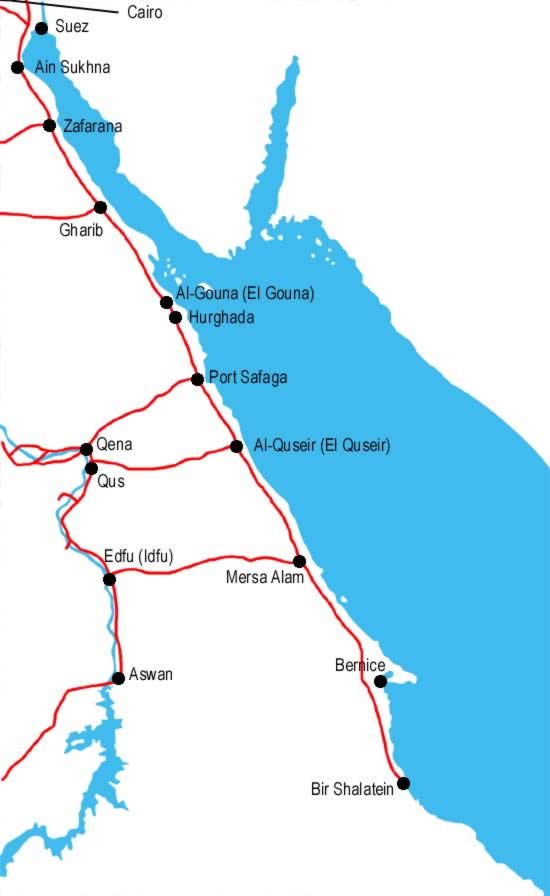
HURGHADA, Egypt (ETN) –As the Egyptian government announced plans to use coal as an important source of energy, the Red Sea Tourism Investment Association based here rejected the plans to import coal, especially from South Africa, as it said that this would mean using Red Sea ports and could be a direct threat to Egypt’s tourism industry.
The association sent a memorandum to the prime minister asking him to intervene to stop the imports of coal to be used as a source of energy for cement factories amid news of plans to import huge quantities of coal through the port of Safaga. This is despite the fact that Safaga is an important tourist destination.
Last year, Egypt was ranked 121 out of 141 countries in the tourism competitiveness index, an indicator of environmental sustainability in The Global Competitiveness Report 2013-14, which aims to measure how establishments operating in the sector help to preserve the environment and use green energy or non-traditional sources of fuel.
Only about 80 hotels and resorts use non-traditional sources of fuel out of more than 2,000 establishments in Egypt. The Ministry of Tourism last year signed a cooperation protocol with the National Bank of Egypt to help tourism enterprises switch to the use of new forms of energy instead of relying on conventional ones and to help them abide by global standards. Minister of Tourism Hisham Zaazou has said in previous statements that the ministry wants to see the use of renewable energy and the development of green tourism to achieve sustainable development.
The association pointed out in its memorandum that importing coal posed a direct threat to tourism and could cause significant environmental damage to the marine environment and coastal areas and beaches, which represent the main factors supporting the tourism sector in the Red Sea. It said that unloading and storing coal at Safaga would result in the emission of toxic gases and the deterioration of the marine environment, leading to the loss of large tracts of coral reefs. Importing coal would mean moving millions of tons of coal on Red Sea governorate roads, which would affect the movement of tourists on these roads.
The association said that importing coal via the Red Sea would stymie attempts by the state and investors to proclaim the Red Sea area free from pollution and declare it a nature reserve. Both these moves would help to develop the area’s tourism industry, it pointed out.
*
Preceding from e-turbo news, which may be accessed at www.etn.travel